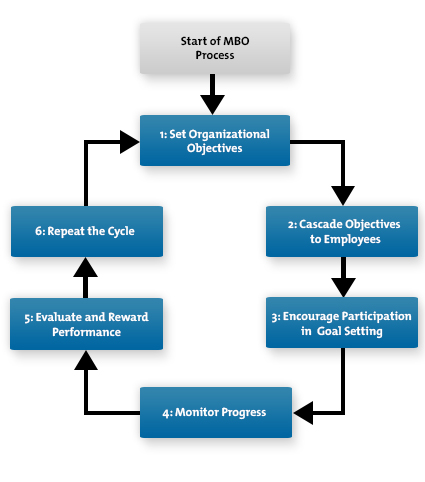Like most of his previous classes one day Prof Mandi brought ab object in the class.This the object was simple magnet and as i was wondering that what management concept could we possibly learn from a magnet he asked us a simple question why does a magnet attracts.The question appeared a simple one as we had read about it in school and most of gave the answer for it.But the final statement we came down to was that a magnet attracts is because all the molecules align them them selves together.
Then Prof Mandi started to explain this concepts relevance in modern management.When ever management aligns itself with the human resources the tasks are successfully accomplished.
We then discussed a key concept called management by objectives.Management by objectives(MBO), also known as management by results (MBR), is a process of defining objectives within an organization so that management and employees agree to the objectives and understand what they need to do in the organization in order to achieve them. The term "management by objectives" was first popularized by Peter Drucker in his 1954 book The Practice of Management.

Then Prof Mandi started to explain this concepts relevance in modern management.When ever management aligns itself with the human resources the tasks are successfully accomplished.
We then discussed a key concept called management by objectives.Management by objectives(MBO), also known as management by results (MBR), is a process of defining objectives within an organization so that management and employees agree to the objectives and understand what they need to do in the organization in order to achieve them. The term "management by objectives" was first popularized by Peter Drucker in his 1954 book The Practice of Management.
The essence of MBO is participative goal setting, choosing course of actions and decision making. An important part of the MBO is the measurement and the comparison of the employee’s actual performance with the standards set. Ideally, when employees themselves have been involved with the goal setting and choosing the course of action to be followed by them, they are more likely to fulfill their responsibilities.
Drucker outlined the six-step process for MBO

Some of the important features and advantages of MBO are:
- Motivation – Involving employees in the whole process of goal setting and increasing employee empowerment. This increases employee job satisfaction and commitment.
- Better communication and coordination – Frequent reviews and interactions between superiors and subordinates helps to maintain harmonious relationships within the organization and also to solve many problems.
- Clarity of goals
- Subordinates tend to have a higher commitment to objectives they set for themselves than those imposed on them by another person
- Managers can ensure that objectives of the subordinates are linked to the organization's objectives.
- Everybody will be having a common goal for whole organization. That means, it is a directive principle of management
No comments:
Post a Comment